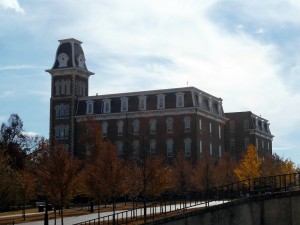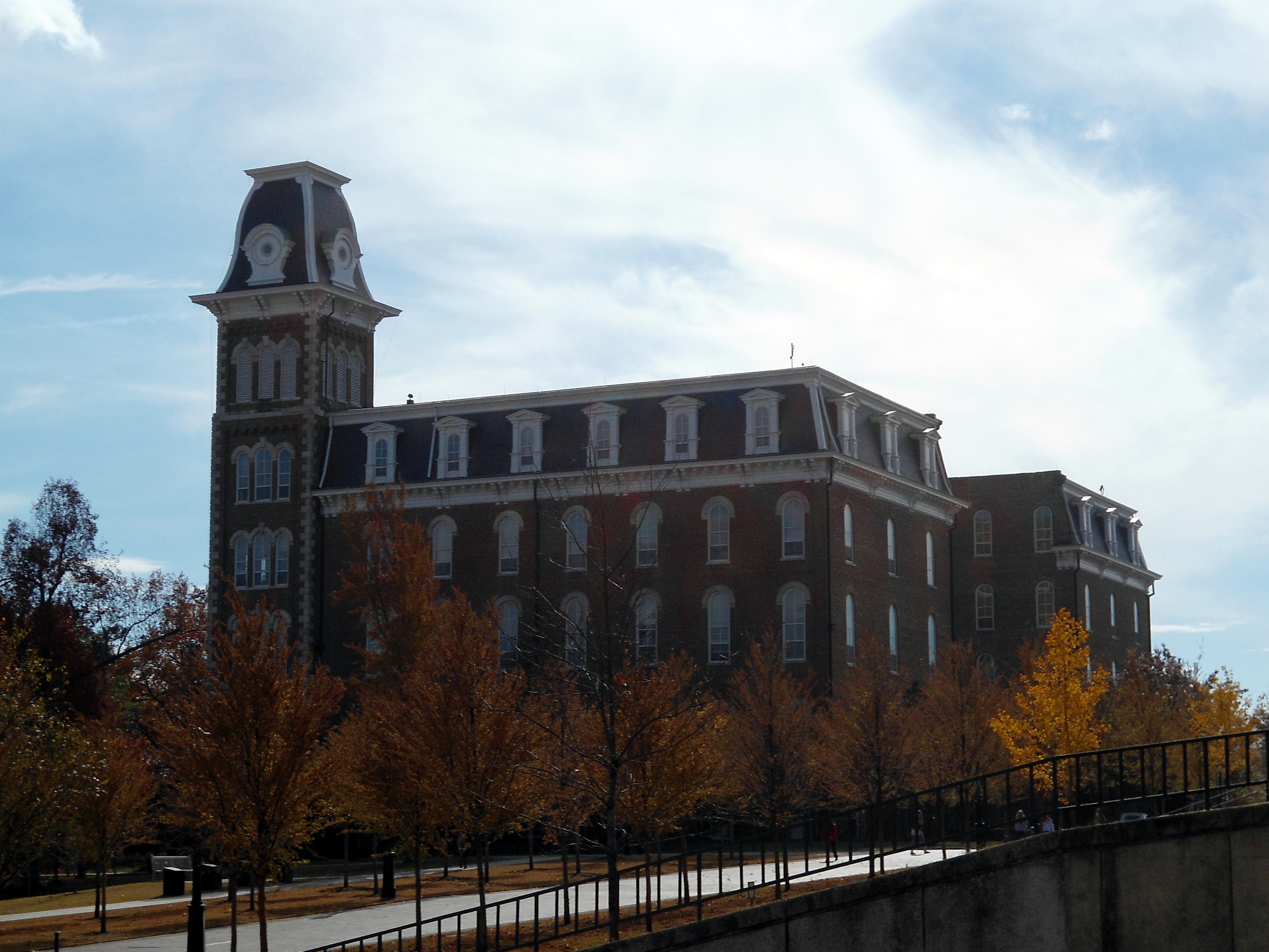 Taking a page from the Eureka Springs City Council’s book, the Fayetteville City Council voted last night to suspend the rules and run a so-called “nondiscrimination” ordinance through in a single meeting.
Taking a page from the Eureka Springs City Council’s book, the Fayetteville City Council voted last night to suspend the rules and run a so-called “nondiscrimination” ordinance through in a single meeting.
City ordinances typically are read and discussed over the course of at least three meetings to give citizens and council members ample time for review and debate; suspending the rules and running an ordinance in a single meeting is a way governing bodies can quickly pass noncontroversial measures or address emergency situations.
However, the Fayetteville ordinance is anything but noncontroversial, and proponents of the ordinance have failed to demonstrate that the ordinance is even necessary, let alone that it somehow addresses an emergency.
Here is a breakdown of the ordinance passed in Fayetteville last night:
Is This Ordinance Different From Those Passed in Other Cities in Arkansas?
Yes. Many people incorrectly lump all “nondiscrimination” ordinances in Arkansas into the same category. The truth is, they vary from one another.
Under Act 137 passed by the Arkansas Legislature earlier this year, a municipality may not prohibit discrimination on a basis not found in state law. The act does not affect local governments’ hiring policies, however.
That means if a city wants to pass a resolution stating it will not make employment decisions on the basis of a person’s sexual-orientation, they may do so. That is what some cities in Arkansas have opted to do–they have passed resolutions stating sexual-orientation will not be taken into consideration in hiring or firing city employees.
A few–like Little Rock, Pulaski County, and the City of Hot Springs–have gone a step further by saying private businesses under contract with the city or county must have “nondiscrimination” policies in place as well. At best, it is questionable whether these ordinances are permissible under Act 137.
The Fayetteville ordinance–like the Eureka Springs ordinance–is much more broad. It does not limit its scope to city employees or private businesses under contract with the City of Fayetteville. Its reach goes much further.
Is This Ordinance Different from the One Voters Overturned Last Year?
The short answer is the new ordinance is not different from the ordinance passed last year in any meaningful sense.
The new ordinance is more simply written, leaning more heavily on the Arkansas Civil Rights Act than the previous ordinance.
It creates a Civil Rights Commission and outlines how the City Attorney and the commission will handle allegations of discrimination–something that was largely omitted from the 2014 ordinance.
A violation of the new ordinance results in a fine, while a violation of the 2014 ordinance could have resulted in criminal prosecution.
The new ordinance also contains exemptions aimed at appeasing religious organizations, but like amendments made to the 2014 ordinance at the eleventh hour, the exemptions fail to protect religious liberty.
Perhaps the most significant difference between the 2014 ordinance and the new ordinance is this: The ordinance passed last night will be voted on by Fayetteville voters at a special election this September. While the ordinance passed last year simply was enacted by the city council, the new ordinance will go before voters later this year. This will give voters the final say on the ordinance.
Altogether, these differences fail to address the concerns expressed over the ordinance passed in 2014–namely that the ordinance infringes religious liberty, expands government, and can have a chilling effect on local business.
The Threat to Religious Liberty
The 2014 ordinance could have been used to prosecute a church or religious school that declined to hire, for example, a gay or transgender teacher, receptionist, or bookkeeper.
The new ordinance says, “Churches, religious schools and daycare facilities, and religious organizations of any kind shall be exempt from this Article.”
There’s a glaring problem with this “exemption,” however: It fails to exempt ministers and religious officials individually.
To put it another way, the ordinance exempts church property–meaning a church could not be forced to host a same-sex wedding on its premises–and it exempts church employment decisions–meaning a church could not be forced to employ someone who does not share its religious views on sexual-orientation and gender-identity. It does not exempt ministers.
Many ministers routinely perform wedding ceremonies and other services at sites other than a church; oftentimes these ceremonies are performed at parks, private wedding venues, gardens, and so on. The ministers, in these instances, may be ordained by a specific church or denomination, but the site of the wedding is not a religious one.
Under this ordinance, a minister who declines to perform a same-sex wedding at one of these locations could be penalized. To suggest churches have religious liberty, but ministers do not is ludicrous, and yet that is exactly what this ordinance does.
The ordinance also fails to protect individuals and business owners with religious objections to same-sex marriage. Across the country we have seen time and time again that photographers, florists, bakers, caterers, wedding venue owners, and similar individuals can be sued and penalized for declining to participate in same-sex ceremonies. In these instances, individuals and business owners are simply trying to live their public lives in accordance with their deeply-held religious convictions–something people of faith are often accused of failing to do.
No one should be forced to aid or participate in an activity that goes against their deeply-held religious convictions, and yet under this ordinance religious individuals could face a serious ultimatum: Participate in a same-sex ceremony or pay a fine to the City of Fayetteville.
Of course, the threats posed by this ordinance go beyond same-sex weddings. For example, a print shop owner with religious objections to homosexual conduct could be forced to print material that goes against his or her deeply-held religious convictions; we have already seen a similar case unfold in Kentucky.
This ordinance continues to treat religious liberty like something that can only be exercised within the confines of a church or private school. That’s a serious issue.
The Expansion of Government
The expansion of government under this ordinance is very straightforward: It creates a Civil Rights Commission and it increases the workload of the City Attorney’s Office.
Under the ordinance, the City Attorney’s Office fields allegations of discrimination and works with the Civil Rights Commission to attempt to mediate disputes and conduct hearings.
The result is more activity and bureaucracy at the level of city government, which, in my experience, always comes at the expense of the taxpayers.
The Chilling Effect on Local Business
As with the 2014 ordinance, any business accused of discrimination under this ordinance will be forced to spend time and money defending itself and its reputation. The possibility of new taxes and frivolous complaints from disgruntled employees as a result of this ordinance may very well deter business expansion in Fayetteville.
Does This Ordinance Allow Men to Enter Women’s Restrooms and Vice Versa?
Yes. The 2014 ordinance included some rather meaningless language attempting to address concerns about men entering women’s restrooms. The new ordinance does not even include that language.
Some proponents of the ordinance have tried to dismiss this as “fear mongering.” Here is why it is a legitimate concern:
Under ordinances like this one, a business may not treat an employee or customer differently on the basis of the person’s “real or perceived gender identity.” That means a biological male who claims to be female must be treated like a biological female.
The concern is that this will give men a valid excuse to enter women’s restrooms, locker rooms, showers, and similar facilities, and that sexual predators may exploit this provision in the ordinance.
We have written before about biological males using women’s locker rooms at exercise gyms; under this ordinance, exercise gyms in Fayetteville could be forced to let employees and customers use the restrooms and locker rooms of their choice. That means a biological male who claims to be female can use the women’s locker rooms, and vice versa.
Conclusion
This is an issue Fayetteville voters already decided last December.
The city council tried to pass a substantively similar ordinance a year ago. Fayetteville residents circulated petitions to call a special election, and they repealed that ordinance. Now the Fayetteville City Council has decided to spend thousands of dollars on a special election revisiting a topic citizens have laid to rest.
Council members have never demonstrated why this ordinance is even necessary. If discrimination in Fayetteville is so rampant that an ordinance to this effect is necessary, there ought to be credible evidence. The absence of that evidence indicates this ordinance is a solution in search of a problem.
Sadly, religious liberty and commonsense seem to be collateral damage in the Fayetteville City Council’s attempt to ramrod a controversial measure through in a single council meeting.
Photo Credit: “Old Main from the northwest, University of Arkansas, Fayetteville, Arkansas (autumn)” by Brandonrush – Own work. Licensed under Creative Commons Attribution-Share Alike 3.0 Unported.



